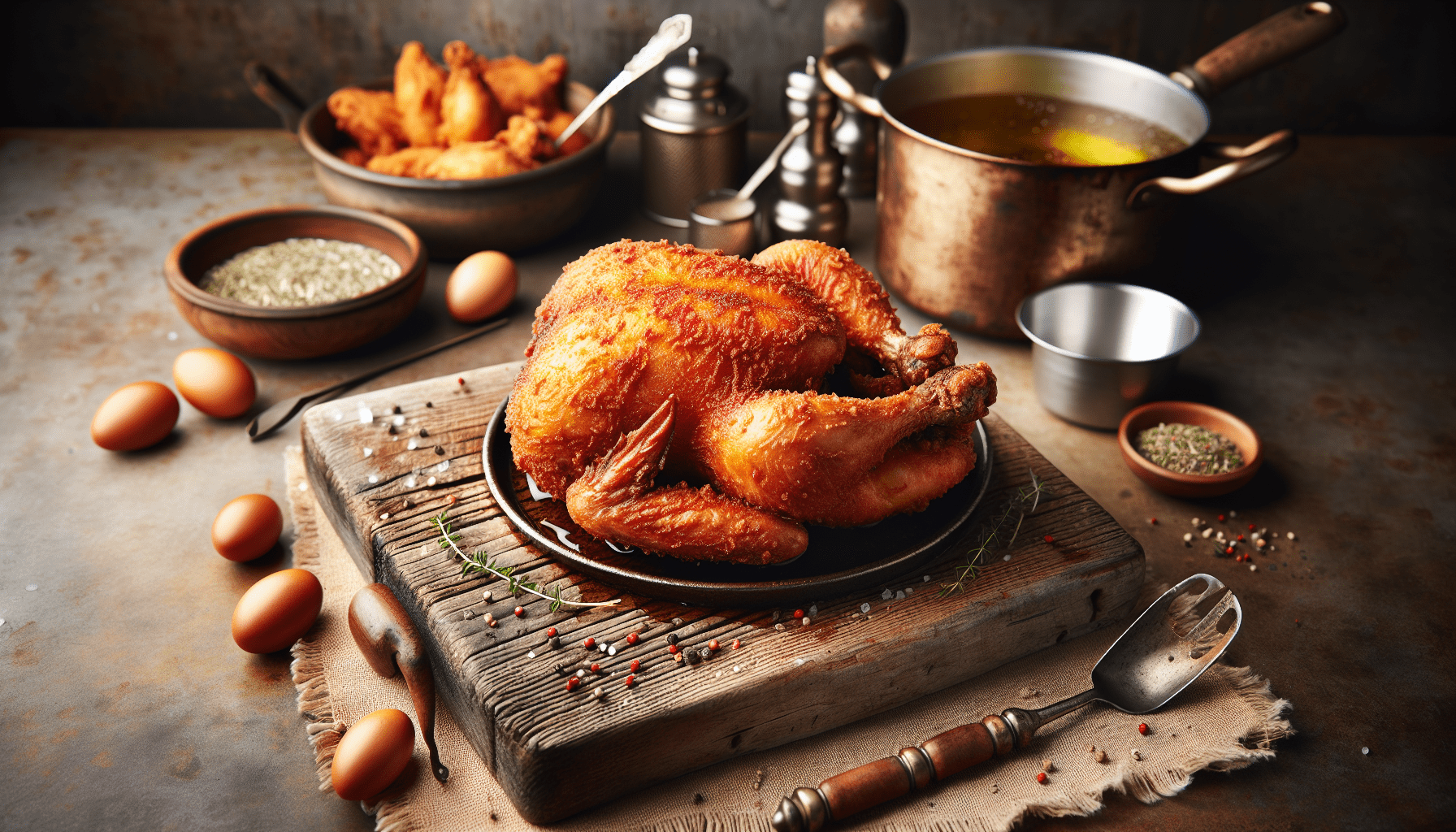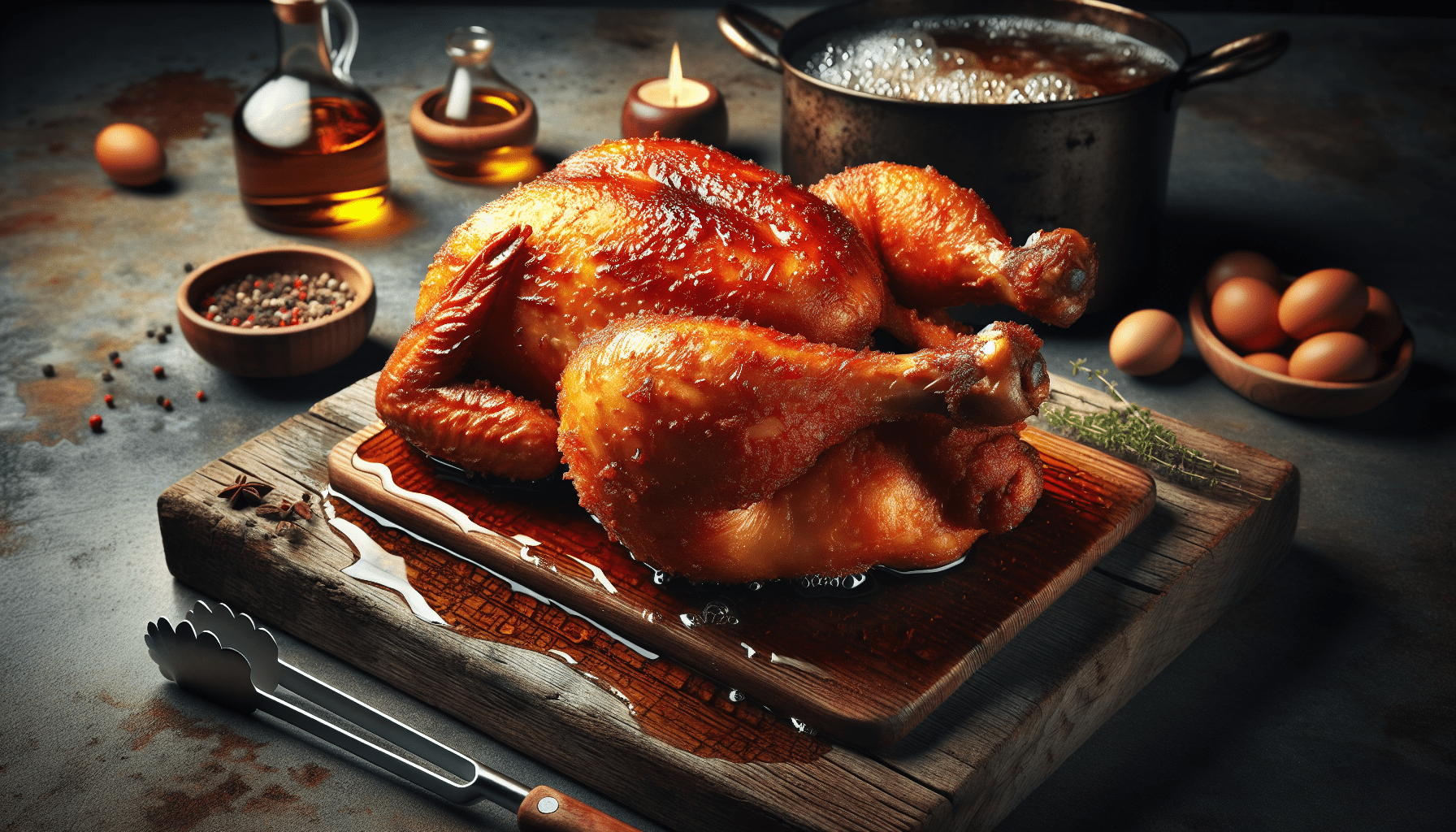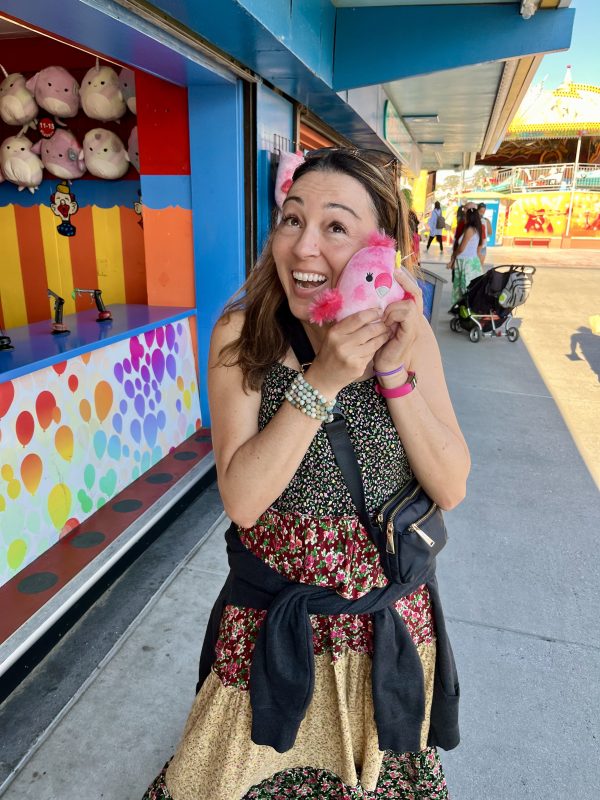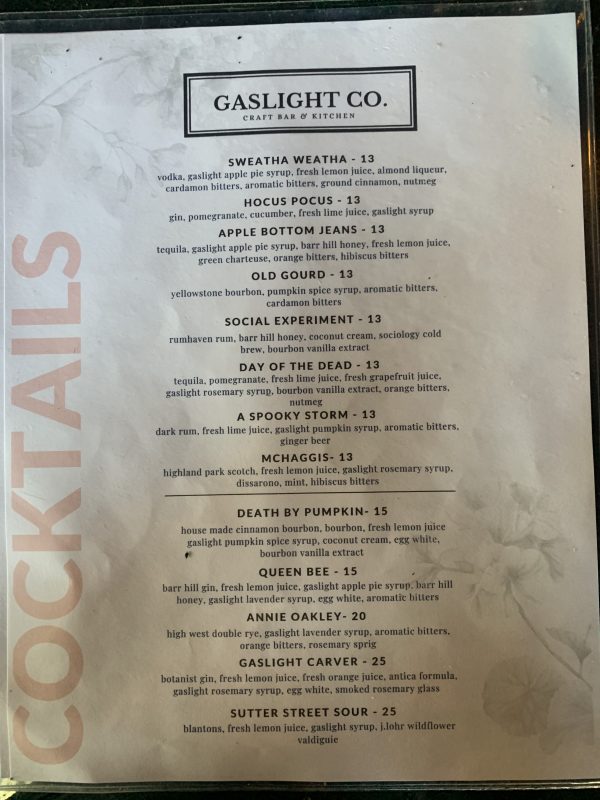Have you ever wondered how to achieve that perfect, crispy whole fried chicken? You know, the kind that’s so juicy on the inside with just the right amount of crunch on the outside? If so, you’re in the right place. Many of us have indulged in fried chicken pieces like wings, thighs, and breasts, but deep-frying a whole chicken can take your culinary skills to the next level.

Get an Official Zagat Restaurant Guide
The Ideal Bird for Deep Frying
Choosing the right chicken is essential. Contrary to what you might think, bigger isn’t always better. As Chef Art Smith from Reunion advises, “Use a small bird—a two-pound chicken is ideal.” You’ll need a big enough pot to fully submerge it, such as a mini turkey fryer.
Importance of Fully Submerging the Bird
A critical aspect of deep-frying a whole chicken is making sure it’s fully submerged in hot oil. If any part of the chicken isn’t covered in oil, it won’t cook evenly. This risk is higher with a whole bird, as there’s more surface area to consider. Smith emphasizes, “Make sure your chicken is marinated and not straight from the fridge.” This brings us to the next vital step—marination.
Prepping Your Chicken for Deep Frying
Preparation begins long before the chicken hits the oil. Marination is crucial for both flavor and texture. If you want a chicken that’s crispy and full of taste, you can’t skip this step.
Brining for Better Results
Brining involves soaking your chicken in salted water filled with herbs and spices. This technique not only adds a kick of flavor but also keeps the chicken tender and juicy on the inside. You can opt for classic saltwater brine, but for an extra layer of tastiness and texture, go with buttermilk.
Using Buttermilk for Extra Crispness
Buttermilk is excellent for softening the chicken while giving it a crisp coating when fried. Steeping your bird in buttermilk allows for the breakdown of proteins, enhancing tenderness and ensuring that it remains juicy.
Optimal Oil Temperature
Another factor that significantly affects the quality of your fried chicken is the oil temperature. The ideal temperature range for making fried chicken is anywhere from 300 to 325 degrees Fahrenheit.
The Importance of Consistent Temperature
A consistent oil temperature ensures that the chicken cooks evenly. Placing a cold chicken directly from the fridge into hot oil can cause the temperature to plummet, leading to uneven cooking. To avoid this, always bring your marinated chicken to room temperature before frying.

Get an Official Zagat Restaurant Guide
Frying Time and Temperature
The duration for which the chicken needs to be fried depends on its weight and size. Therefore, patience is key here.
Using a Meat Thermometer
Instead of guessing, use a meat thermometer to check the internal temperature of your chicken. Smith suggests, “Check that the thickest part of the thigh reaches 165 degrees Fahrenheit.” This ensures that your chicken is fully cooked inside.
Post-Frying Tips
Once you’ve achieved that golden-brown perfection, don’t rush to serve. According to Smith, allowing the chicken to rest is essential.
Letting It Cool Before Serving
Cooling the chicken on a rack before serving helps maintain its crispy skin. Skipping this step could result in soggy skin, which is the last thing you want after all the hard work.
Table: Summary of Steps for Deep-Frying Whole Chicken
| Step | Details |
|---|---|
| Choose the Right Bird | Use a small bird, ideally around two pounds. |
| Fully Submerge the Chicken | Ensure it is covered entirely in hot oil to cook evenly. |
| Marinate the Chicken | Use a brine or buttermilk to enhance flavor and tenderness. |
| Maintain Oil Temperature | Fry at a consistent temperature between 300 to 325 degrees Fahrenheit. |
| Check Internal Temperature | Make sure the thickest part of the thigh reaches 165 degrees Fahrenheit. |
| Cool Before Serving | Let the fried chicken rest on a rack to maintain crispy skin. |
Additional Tips and Tricks
Now that you’re armed with the basics, let’s delve into some extra tips that can come in handy.
Choosing the Right Oil
When deep-frying, the type of oil you choose is crucial. Peanut oil is a popular choice because of its high smoke point, but you can also use canola or vegetable oil. The key is to pick an oil that won’t burn easily.
Monitoring Oil Levels
As the chicken fries, it will release moisture, causing the oil level to fluctuate. Keep an eye on the oil level and add more if necessary to ensure the chicken remains fully submerged.
Seasoning After Frying
While marination adds flavor, seasoning the chicken right after it comes out of the oil enhances its taste further. A salt sprinkle or your favorite spice mix can make a significant difference.
Cleanliness and Safety
Deep frying can be a messy and hazardous task. Keep your workspace clean and make sure you have enough ventilation. Always use a thermometer not just for the chicken but for the oil as well, to avoid any fire hazards.
Use Dry Rubs and Injectables
For another flavor dimension, consider using dry rubs or injectables. A dry rub can add a crispy, flavorful crust, while injectables can infuse the meat with rich flavors.
Serving Suggestions
Once your whole fried chicken is ready, think about how to serve it. While the chicken is undoubtedly the star of the show, excellent sides can elevate the meal.
Classic Sides
- Mashed Potatoes: Creamy mashed potatoes balance the crunchy chicken texture.
- Coleslaw: Adds a refreshing, tangy contrast.
- Cornbread: Sweet and soft, a perfect complement.
Table: Suggested Sides for Whole Fried Chicken
| Side Dish | Description |
|---|---|
| Mashed Potatoes | Creamy and smooth |
| Coleslaw | Tangy and refreshing |
| Cornbread | Sweet with a soft texture |
Dipping Sauces
Don’t forget the dipping sauces. Whether it’s a classic ranch, spicy buffalo, or tangy honey mustard, the right sauce can heighten the chicken’s flavors.
Troubleshooting Common Issues
Let’s face it, things don’t always go as planned in the kitchen. Here are some common issues and how to fix them.
Uneven Cooking
If your chicken is cooking unevenly, it might not be fully submerged, or the oil temperature could be inconsistent. Ensure full submersion and a stable oil temperature throughout the frying process.
Soggy Skin
This often results from not letting the chicken cool properly. Patience is key. Let it rest on a rack for a few minutes before serving to maintain that crispy texture.
Bland Flavor
If the chicken tastes bland, the marination might not have been long enough, or you may need more seasoning right after frying. Brine for at least a few hours, preferably overnight, for better results.
Nutrition Considerations
Fried chicken is delicious, but it’s not the healthiest option. Here are some ways to make it slightly better for you.
Choosing Healthier Oils
Opt for oils lower in saturated fats like canola or vegetable oil. Peanut oil, while popular for frying due to its high smoke point, has higher saturated fats.
Limiting Portions
While it’s tempting to indulge, try to eat in moderation. Pair your chicken with healthier sides like steamed vegetables to balance the meal.
Using a Thermometer
Cooking your chicken to the right internal temperature ensures you’re not overcooking it, which can break down its nutritional quality and make it less healthy.
Conclusion
Deep-frying a whole chicken is an art that combines the right choice of bird, proper preparation, and precise cooking techniques. From marinating to maintaining oil temperature and letting the chicken cool after frying, each step is crucial. With these tips, not only will your chicken be delicious and crispy, but you’ll also impress your friends and family with your culinary skills.
Still curious or have more questions? Remember, practice makes perfect. Happy cooking, and enjoy your perfectly fried whole chicken!
Get an Official Zagat Restaurant Guide






